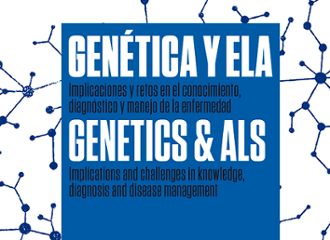Events
Start of main content
The physiopathological basis for treatment in Multiple Sclerosis
Life and Matter Sciences International Symposium March 15 - 16, 2001 Madrid
Multiple sclerosis (MS) is the most common chronic demyelinating disease of the central nervous system (CNS).
Organized by:
Fundación Ramón Areces
Coordinator/s:
José Carlos Álvarez-CermeñoServicio de Neurología. Hospital Universitario Ramón y Cajal. Madrid.
- Description
- Programme
Description
It affects young adults in the most active period of life, leading to major perturbations in their daily and professional activities. Therefore, the full economic and emotional costs of the disease are substantial. An overwhelming deal of information on MS pathogenesis has appeared during the last decade. It is currently believed that autoreactive CD4 cells play a paramount role at the initial steps of CNS inflammation, although other cells such as glia and macrophages are implicated as well. Complement and autoantibodies against different myelin antigens may also play a role, taking into account that heterogeneity in MS pathogenesis is currently accepted.
Magnetic resonance imaging (MRI) has provided new and important data on MS pathogenesis being the most accurate method to assess disease activity. Likewise, MR spectroscopy (MRS) has showed that demyelination, the hallmark of the disease, is not able to completely explain the permanent deficits of patients. Axonal damage seems to be the major cause of patients' impairment and this finding has been confirmed pathologically. It has been also shown that axonal loss may contribute to the brain atrophy that MS patients may show in MRI studies.
The evidence that MS has an autoimmune pathogenesis has led to the successful use of interferon beta in its treatment, positively affecting the natural history of the disease. Such medication diminishes the relapse rate, disease progression and brain atrophy. Likewise, immunosupressors and stem cell transplantation may be useful in selected cases.
We are living a historical age in the research of MS. The investigation of last recent years has provided new insights in the mechanisms of the disease as well as treatments that, although not curative, greatly improve the quality of live of our patients. Some of the invited speakers are responsible for those advances. We all gratefully acknowledge their effort.
Programme
Thursday, 15 - Friday, 16
Participants
José María Segovia
Consejo Científico.
Fundación Ramón Areces.
José Carlos Álvarez-Cermeño
Coordinador del Simposio.
Óscar Fernández
Servicio de Neurología.
Complejo Hospitalario Universitario Carlos Haya.
Málaga.
Rafael Fernández Muñoz
Unidad de Virología.
Hospital Universitario Ramón y Cajal.
Madrid.
Carmen Guaza
Unidad de Plasticidad Neural.
Instituto Cajal.
CSIC.
Madrid.
Melchor Álvarez de Mon
Departamento de Medicina.
Universidad de Alcalá de Henares.
Peter Werner
Department of Neurology and Neuropathology.
Albert Einstein
College of Medicine.
Nueva York. EE.UU.
Bruce D. Trapp
Cleveland Clinic Foundation.
Cleveland. EE.UU.
Guillermo Izquierdo
Servicio de Neurología.
Hospital Universitario Virgen Macarena.
Sevilla.
Alberto Alcázar
Servicio de Bioquímica de Investigación.
Hospital Universitario Ramón y Cajal.
Madrid.
Luisa María Villar
Servicio de Inmunología.
Hospital Universitario Ramón y Cajal.
Madrid.
Edward J. Thompson
Dept. of Neuroimmunology.
National Hospital for Neurology & Neurosurgery.
The Institute of Neurology.
Queen Square.
Londres. Reino Unido.
Xavier Montalbán
Unidad de Neuroinmunología Clínica.
Hospital Valle de Hebrón.
Barcelona.
Txomin Arbizu
Unidad de Esclerosis Múltiple.
Ciudad Sanitaria y Universitaria de Bellvitge.
L'Hospitalet de LLobregat. Barcelona.
Donald W. Paty
Professor, Neurology.
UBC Hospital.
Vancouver. Canadá.
Lawrence Jacobs
State University of New York at Buffalo.
Buffalo General Hospital.
Buffalo. EE.UU.
Antonio García Merino
Servicio de Neurología.
Hospital Universitario Clínica Puerta de Hierro.
Madrid.
Fransesc Graus
Servicio de Neurología.
Hospital Clínic i Provincial.
Barcelona.
-
 Activities related
Activities related
-
 Projects related
Projects related
-
 News related
News related
-
 Publications related
Publications related
 Activities related
Activities related
-
26
Jun
2024
Conferencias La aventura de la ciencia Madrid, Miércoles 26 de junio de 2024, 19:00 horas
-
13
Feb
2025
17th edition. Cycle of conferences and debates in science Digital Twins: Technological Advances and Application Opportunities Madrid, Thursday, 13 February 2025, 17:30 hours
-
18
Feb
2025
Session New Therapies for the Inflammation Treatment Madrid, Feb 18th, 2025, Tuesday. 4PM
 Projects related
Projects related
- Development and Application of saRNAs for the Treatment of Rare Monogenic Diseases 2024 Senior Researcher : María Luisa Cayuela Fuentes
- CHANNELOSOME RESCUING PEPTIDES IN THE TREATMENT OF ARRHYTHMIAS IN INHERITABLE HEART DISEASES 2024 Senior Researcher : José Jalife Research Centre or Institution : Centro Nacional de Investigaciones Cardiovasculares (CNIC). Madrid
- Mechanisms for sustaining mitochondrial genome integrity and function during hematopoiesis. 2024 Senior Researcher : Ana Victoria Lechuga Vieco Research Centre or Institution : Fundació Clínic per a la Recerca Biomèdica. Hospital Clínic. Barcelona
 News related
News related
 Publications related
Publications related


End of main content



